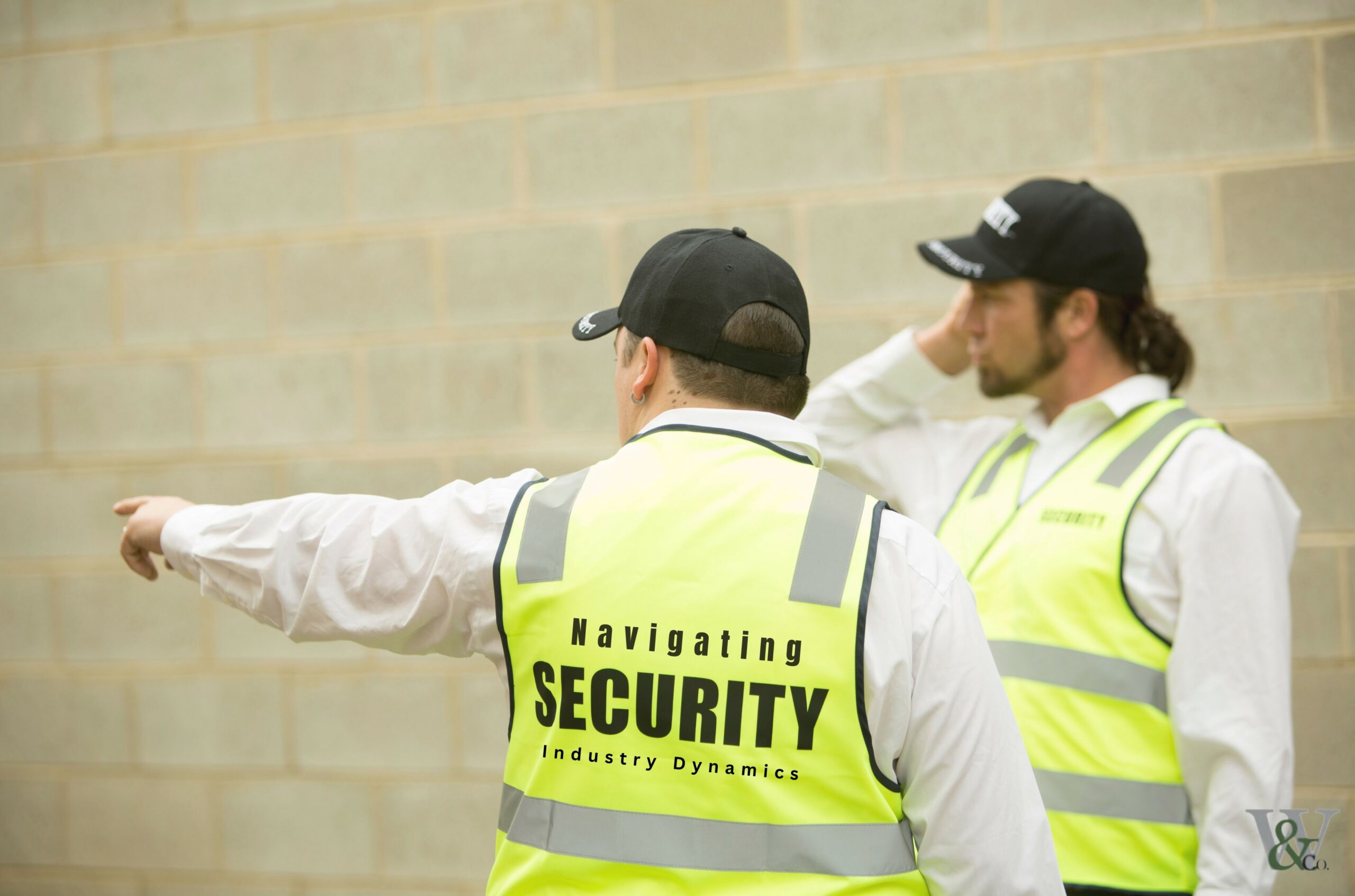In a recent and enlightening discussion, our CEO, Anna, had the privilege of engaging in a thoughtful dialogue with Paul Fullwood, the Director of Inspections & Enforcements at the Security Industry Authority (SIA), to delve into crucial issues affecting security personnel. Our primary aim was to unravel the intricacies of collaboration between His Majesty’s Revenue Customs (HMRC) and the SIA, while also exploring the challenges within the current framework, advocating for better recognition for both lower and higher-end roles, and addressing key aspects of the security industry.
Paul’s expressed concern about the financial exploitation and the below standards working environment of security guards and door supervisors set the tone for the conversation. He emphasised, “Our collaboration with HMRC aims to protect and assist individuals facing exploitation,” underscoring the need for dedicated attention to the door supervisor and security guard sector and identifying various vulnerabilities.
This concern led the conversation toward the challenges of regulating the gig economy, particularly in enforcing labour laws and maintaining consistency across the UK. Paul shed light on the issues arising, stating, “Most of our challenges arise from WhatsApp groups and Facebook,” platforms where regulating standards becomes more challenging and may potentially slip under the SIA’s radar. This raised the pressing issue of unqualified or underpaid security personnel, prompting further exploration into effective regulatory measures, with a strategic focus on events and security suggested as a potential solution.
The discussion led to the pivotal role of the SIA in regulating security personnel, proposing collaboration with HMRC to eliminate cash-in-hand jobs. Anna suggested that HMRC could adopt a scheme similar to the construction industry scheme. Paul acknowledged the need for improvement, stating, “Our current system is inadequate; it needs to evolve.” Ambiguities in the licensing regime were highlighted, focusing on areas where clarity and precision are imperative to prevent potential abuses.
The conversation broadened to encompass non-cash jobs across industries. Anna highlighted, “Our primary focus is to safeguard our clients and adapt to any changes.” This exploration of alternative approaches aims to benefit individuals, especially in areas such as lending, mortgages, and overall financial well-being, navigating the complex landscape of the security industry.
In a candid exchange, Paul pointed out potential inadequacies in the current regulatory framework, urging urgent reassessment. Regarding the close protection (CP) industry, he noted, “the standard we set is below what it would have been in the military & police, which is understandably frustrating.” Sparking a discussion on refining industry standards for a more robust approach to professionalism and training.
Anna expressed concerns about companies adjusting to regulations while integrating with new security platforms, and Paul illuminated the ongoing discussions within the SIA special interest group. This group is dedicated to cultivating a continuous dialogue between the SIA and those affected by its regulations. Both concurred that any feedback—positive or negative—can be a valuable asset, emphasising the importance of utilising this feedback to drive improvements and collectively enhance the security industry.
Paul, as a former ex-forces member and assistant chief constable in the police, brought a unique perspective, stressing the significance of recognising skills and professionalism within the sector. Anna echoed this sentiment, underlining the need to provide better acknowledgment of CP personnel due to their higher education and skill development compared to doormen.
Navigating the distinctions between lower-end and higher-end security training companies posed a challenge. Anna advocated for clearer regulations, envisioning a system where individuals trained for CP receive higher recognition. Paul emphasised the imperative need for regulation, stating, “Business licensing is absent across the security industry; we solely regulate individuals.” The conversation highlighted the importance of a comprehensive regulatory framework to ensure consistency and accountability across diverse training entities.
Expressing frustration with the lack of visibility and engagement from the SIA, particularly in regards to CP licensing, Paul and Anna concurred that it’s time to reassess and improve the CP training element and professional development. They underscored the necessity for CP training companies to operate within a regulatory framework, which can only come from the SIA.
We extend sincere thanks to Paul for sharing invaluable insights into the security industry. From addressing exploitation concerns in the door supervisor sector to advocating for regulatory reassessment, the conversation highlighted a shared commitment to enhancing professionalism. As we navigate distinctions between security training companies and envision clearer regulations, Paul’s emphasis on the imperative need for industry-wide regulation paves the way for continued exploration and improvements.
We invite insights from those currently working in the security industry, whether in roles such as CP, DS, or event guarding. Your perspectives on potential enhancements, regulatory adjustments, and elevated training standards would be valuable contributions to the industry’s advancement and the improvement of individual working standards. Please share your thoughts with us!





